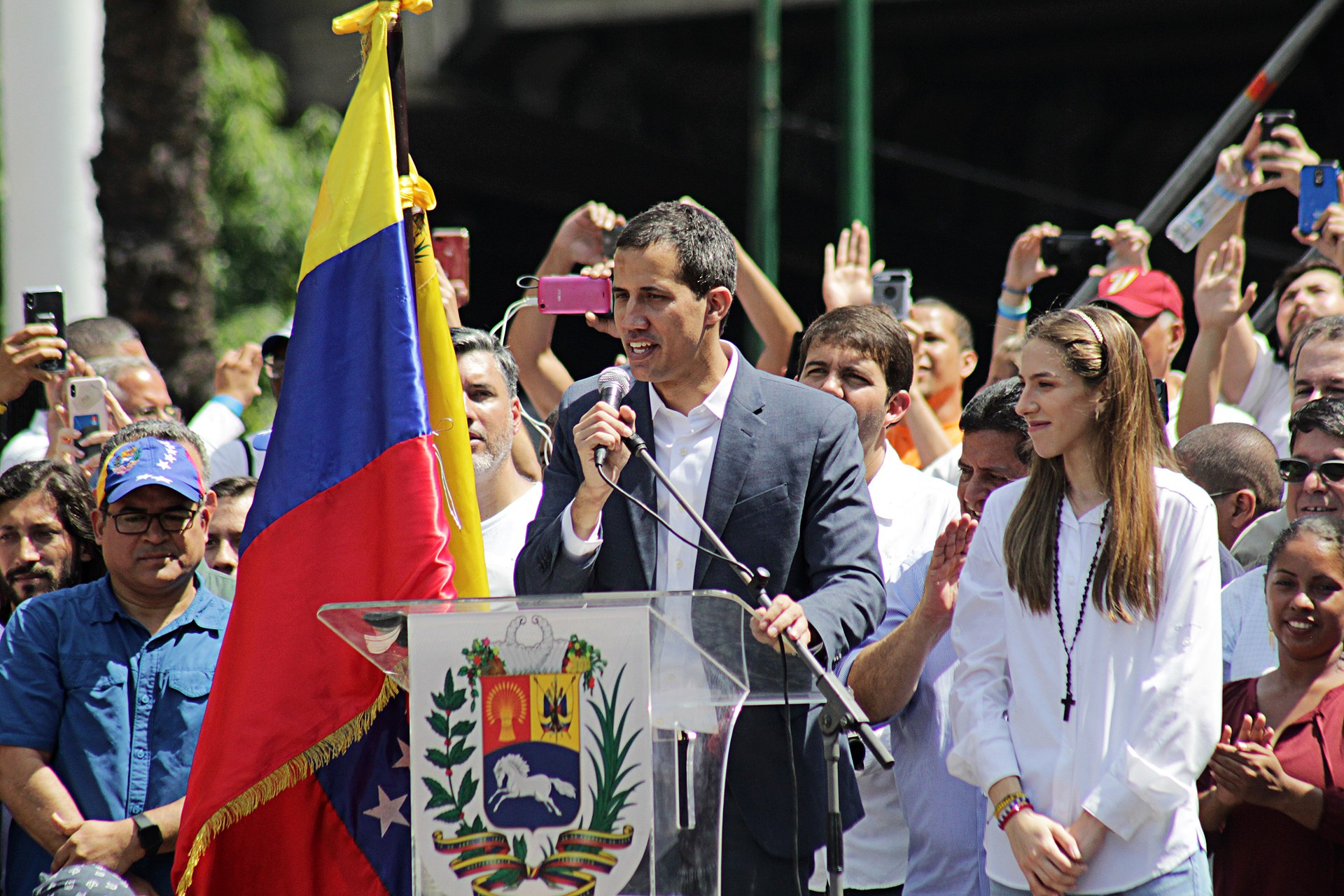Will National Assembly Election Prove Decisive for Venezuelan Opposition?

As Venezuela’s National Assembly prepares to vote on whether to re-elect Juan Guaidó as its president on January 5, the democratic opposition stands at a critical moment. Faced with declining popularity, leaders in exile and rising corruption within the movement, the opposition is struggling to maintain domestic and international support ahead of the election within its last remaining legitimate democratic institution.
Regardless of who is selected to lead the National Assembly, it is crucial the democratic opposition remain united in its fight against the authoritarian regime of Nicolas Maduro. This is particularly important as the country pushes for free and fair general elections and prepares for legislative elections constitutionally set for 2020 – elections that may be deemed illegitimate due to regime interference or low voter turnout.
Juan Guaidó was selected as Venezuela’s National Assembly president on January 5, 2019 to take over the rotating presidency of the legislature. Five days later, Nicolas Maduro began his second term based on a sham election held on May 2018, which was held sooner than constitutionally mandated and in which opposition candidates were barred from running.
Guaidó assumed his role as interim president in accordance with Article 233 of the Venezuelan constitution, which calls for the body’s president to assume the role of interim president if there is a vacuum in power—which was determined to be the case when Maduro refused to step down following his fixed election and in the face of enormous popular pressure.
On January 5, 2020 the National Assembly must once again decide whether to appoint Guaidó as body president. If Guaidó is not re-elected, the presidency will go to a deputy from opposition minority parties based on an opposition agreement at the start of the session. Either Guaidó or a new president will face an uphill battle to revive lagging support for the opposition and unify the movement. If Guaidó is not re-elected, the lack of continuity in leadership of the National Assembly may cause supporting countries to waver in continuing their support, particularly if the new leader is unable to galvanize Venezuelans as Guaidó did.
The unity of that movement is being threatened by machinations by Maduro and his allies. After a year of refusing to recognize the National Assembly’s legitimacy by creating a parallel body populated by regime sympathizers and blocking any action taken by the body – Maduro’s United Socialist Party of Venezuela (Partido Socialista Unido de Venezuela, PSUV) deputies recently rejoined the Assembly and have made it clear that they will be participating in the January 5 vote. PSUV and sympathizing parties hold 50 of the 167 seats in the body, while the Democratic Unity Roundtable (Mesa de la Unidad Democratica, MUD) holds 64.
At the same time, the regime has increased its persecution of opposition deputies through measures such as lifting their parliamentary immunity and arresting them. In response, many have sought asylum at embassies or have fled the country altogether. This will prevent opposition deputies from participating in the January 5 vote and may further weaken their image in the eyes of the Venezuelan people.
In an effort to circumvent the regime’s tactics, the National Assembly passed a law allowing deputies in exile to cast their votes electronically. The next day, the Supreme Justice Tribunal (Tribunal Supremo de Justicia, TSJ) annulled the law. Now, the opposition is working towards ensuring it has enough votes.
The coalition’s inability to secure Guaidó’s position through the final year of the Assembly’s current session could seriously undermine public confidence. In early 2019, Guaidó assumed heroic status in Venezuela and on the world stage for his calls to take to the streets in pursuit of the restoration of democracy. Hundreds of thousands of Venezuelans joined protests—even in longtime Chavista strongholds. Yet fewer Venezuelans have attended opposition rallies in recent months, raising questions about the sustainability of the popular protest movement and Guaidó’s leadership.
Even so, on November 16, Guaidó again called for citizens to take to the streets in order to prove that the opposition maintained the full support of the Venezuelan people and end 2019 with a political win. Despite a lower-than-expected turnout, the protests made it seem that the opposition coalition and many Venezuelans continued to be united toward the same goal of removing Maduro from power. Support for the opposition may have been further damaged by recent high-profile accusations of corruption. On December 1, a number of opposition deputies were accused of accepting bribes from the Maduro regime to vouch for regime officials as well as to vote against re-electing Guaidó.
Whatever the case, the opposition must find a way to move forward and continue to present a cohesive front on pivotal issues including humanitarian aid and the need for free and fair general elections. Should it fail, the Maduro regime will almost certainly strengthen its grip on power, prolonging the immiseration of the Venezuelan people and undermining any progress toward democracy.
Top